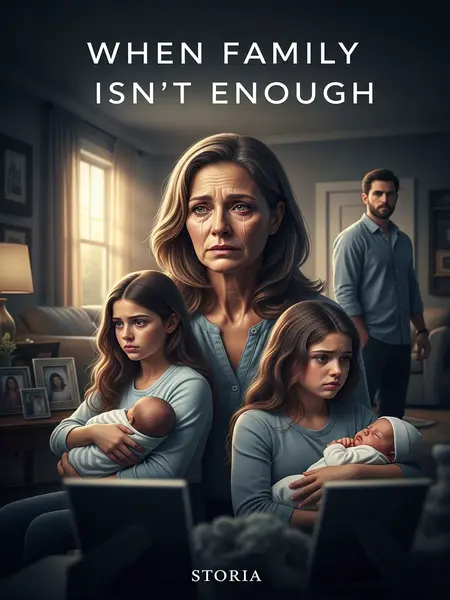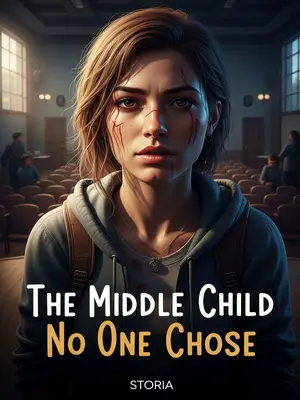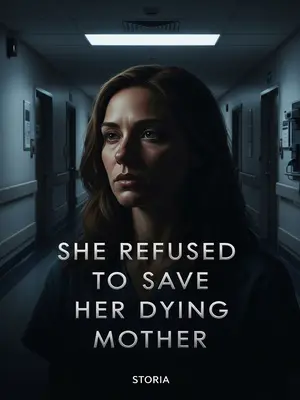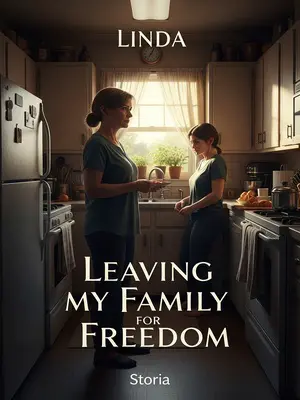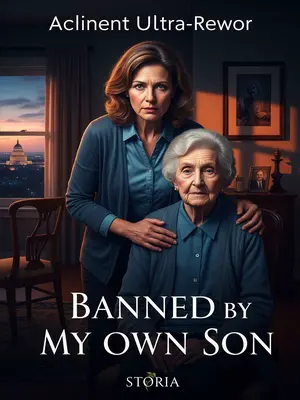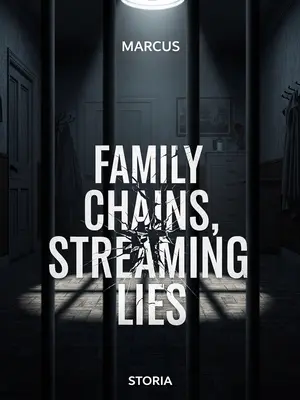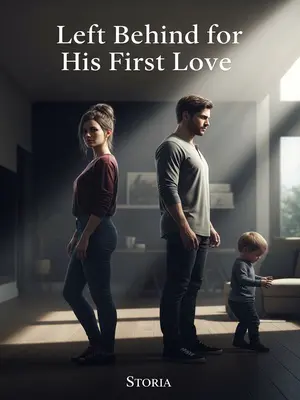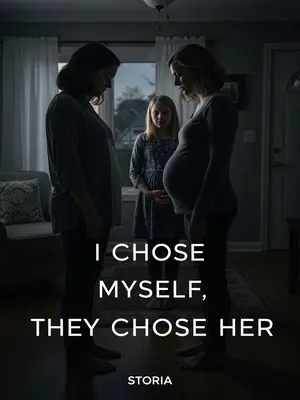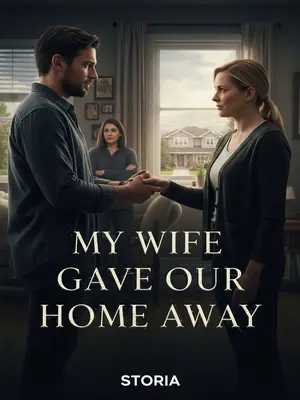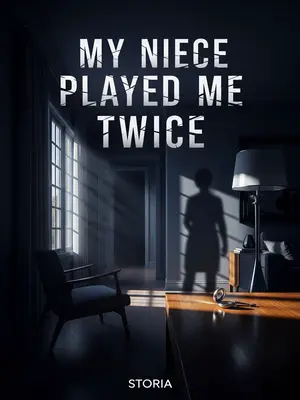Chapter 4: Breaking Point
“Did you already eat? Did you have this too?” I asked.
She replied, “I already ate, Mom. We’ve been eating too much greasy food. We should eat lighter meals.”
She tried to smile, but her eyes looked tired. I wondered if she really believed it, or if she was just trying to convince herself.
But this was too light. Still, I don’t usually have much appetite in the morning, so I let it go.
I stirred the oatmeal, wishing for a little brown sugar, but kept quiet. Some fights just aren’t worth it.
Lunch was plain white rice and a plate of steamed broccoli. I didn’t say a word, just ate quietly.
I chewed each bite slowly, watching the neighbor kids shoot hoops in the driveway. I wondered if their grandma ever ate like this.
That night, after Ethan got home from work, the couple sat down to eat. The baby started fussing. By the time I finished soothing him and came to the table, there was only a bowl of soup left for me.
The soup was thin, almost like dishwater, with a few sad carrot slices floating on top. My stomach grumbled. I forced a smile anyway.
Savannah said awkwardly, “Not much for dinner tonight, Mom. Just have some soup. It’s not good to eat too much at night.”
She wouldn’t meet my eyes. I could tell she was embarrassed, but too proud to admit it.
I paused, said nothing, and quietly ate.
I sipped the soup, feeling emptier with each spoonful. I wondered how long I could keep this up.
The next day, the baby needed his vaccinations. Ethan’s office is on the way to the pediatrician, so the plan was to ride with him.
I packed the diaper bag, double-checked the appointment time, and waited by the door. I’m always the last one out, making sure nothing gets left behind.
But when we left, I was the last one down the stairs, holding the baby. By the time I made it out to the porch, Ethan had already driven off with Savannah.
I stood there, the car halfway down the street, the baby fussing in my arms, confused by all the commotion.
Savannah called me: “Mom, just call an Uber. I’ll wait for you at the clinic.”
Her voice was casual, as if this was no big deal. I felt a surge of anger, but kept my tone even.
I scoffed. Was Ethan really that upset I didn’t pay my living expenses?
I muttered under my breath, the neighbor’s dog barking as if to agree with me.
Savannah insisted, “No, that’s not it, Mom. Just call a car. Otherwise, it’ll be too crowded.”
She tried to sound reassuring, but I could hear the strain in her voice.
I hung up.
I didn’t trust myself to say another word. The baby blinked up at me, wide-eyed and trusting.
Looking at my grandson sucking his thumb, I opened my phone and bought the earliest Amtrak ticket home. Then I went upstairs.
I cradled the baby one last time, kissed his soft hair, and tried not to cry as I packed my bags.
After packing, I sent Savannah a text:
“Half an hour from now, I’m leaving for the station. Where should I leave the baby?”
I hit send, my hands shaking. I waited, heart pounding, for her reply.
Twenty minutes later, Savannah rushed back in.
She burst through the door, breathless and frantic, eyes wide with panic.
“Mom, what’s wrong now?”
Still pretending not to know.
She tried to sound calm, but her voice was thin and shaky.
I picked up my suitcase and walked out. Savannah quickly blocked the door.
She planted herself in front of me, arms out, determined not to let me pass.
“Why are you leaving again? Didn’t we agree you didn’t have to pay? What are you doing now?”
She looked at me like I was the one being unreasonable, as if none of this was her fault.
Does she really think I’m the problem here?
I bit back a retort, trying to keep my temper in check. I was too tired to argue.
I told her straight: “If I stay, am I supposed to keep using toothpaste that doesn’t even foam, eat plain rice and broccoli, and drink leftover soup? I don’t even get to ride in your car? Didn’t you say you talked to Ethan? What have you two been doing these past few days? I’m really curious—how did you actually resolve things that day?”
I laid it all out, my frustration boiling over. I wanted real answers, not more runaround.
Savannah opened her mouth but couldn’t answer for a long time. Finally, she let out a breath and spoke with resignation:
Her shoulders sagged, the fight gone from her. She looked like she hadn’t slept in days.
“I paid your rent for you, but I really can’t afford the living expenses. I negotiated with him—we’d be frugal from now on, and I’d handle my own transportation. He finally agreed to reduce it by $200. Mom, I’m using the same toothpaste that doesn’t foam, eating the same plain rice, broccoli, and leftover soup. Why can’t you be a little more understanding?”
Her voice was pleading, almost desperate. I saw the exhaustion in her eyes, the hopelessness she tried so hard to hide.
I couldn’t help but laugh in disbelief. “Why should I understand you? You brought this on yourself! Did you ever ask my opinion? You just assumed I’d accept it. Well, I’m telling you now—I don’t accept it!”
My laughter was sharp, almost bitter. I felt years of frustration bubbling up, my patience finally gone.
I couldn’t be bothered to argue anymore. This was just too much. I shoved past her and walked out.
I pushed past her, suitcase in hand, my heart pounding. I didn’t look back.
But while I wasn’t looking, she snatched my backpack and quickly grabbed my driver’s license.
She moved fast, like a kid trying to hide the evidence. I stared at her in disbelief.
She said, “Mom, calm down. You’re just overreacting.”
Her voice trembled, but she wouldn’t meet my eyes. She clutched the baby to her chest and hurried back to her room, leaving me standing in the hallway.
After saying that, she didn’t dare look at me, picked up the baby, and went back to her room.
The door clicked shut behind her. I stood there, staring at the empty space she’d left.
I stood there in silence, not sure if I was more angry or disappointed. Or maybe I just pitied her for being so unwilling to stand up for herself, willing to endure such a marriage, and even trying to trap me as her mother.
I leaned against the wall, feeling the weight of all the years I’d spent trying to protect her. Maybe I’d failed her after all.
Either way, I couldn’t stay another second.
I wiped my eyes, squared my shoulders, and made up my mind. Enough was enough.
She thought taking my ID would stop me from leaving. How childish.
She’d forgotten I still had my passport tucked away in my suitcase. You don’t raise two kids without learning a few tricks of your own.
I ordered a car, paid extra, and rode over 700 miles for 13 hours. I left in the evening, and by mid-morning the next day, I was home.
The trip was long and lonely. The sun came up over the fields of Ohio, painting everything gold. I watched the world blur by, wondering how it had all come to this.
As I got out, my daughter called.
My phone buzzed as soon as I stepped onto the front porch. I almost didn’t answer, but some habits are hard to break.
“Mom, where are you? Come back quick. I need to go out and there’s no one to watch the baby.”
Her tone was casual, as if nothing had happened. She didn’t seem to care that I’d been gone all night, had no ID, and might not even have found a place to sleep.
It was like she thought I’d just run out for milk, not disappeared for thirteen hours. I felt a rush of anger—and a stab of sadness.
I said, “I’m home.”
I tried to keep my voice steady, but it shook anyway.
“What!” Savannah’s voice shot up. “How did you leave? You just abandoned the baby! How could you be so heartless!”
Her words landed like a punch. I closed my eyes, fighting tears. My body ached from the long ride, and her accusations hurt more than I wanted to admit.
Her shrill voice made my head throb. After riding in a car for over ten hours, I was already exhausted, and her yelling made it worse. I hung up on her.
I dropped the phone onto the kitchen counter and took a shaky breath. For the first time in months, the house was quiet.
After a while, I walked home.
I trudged up the walkway, suitcase in hand, feeling every step. The familiar creak of the porch boards was oddly comforting.
When I got home, Frank was frowning, talking on the phone. When he saw me, he quickly said into the phone, “Your mom’s back. I’ll talk to her later.”
He waved me inside, his brow furrowed with worry. The house smelled like coffee and cinnamon rolls—like home.
As soon as he hung up, he started in on me. “Look at you! At your age, how can you be so stubborn? Our daughter’s just being careful with money—better than wasting it. You just left and abandoned the baby. What do you expect her to do? What kind of mother are you?”
He’d only heard Savannah’s side, didn’t know the whole story, and just blamed me.
I opened my mouth to defend myself, but the words stuck. The room spun, and I grabbed the edge of the table for balance.
I was already dizzy, and his unfair scolding made my vision go black. I was about to argue back, but suddenly I felt nauseous, gagged, and threw up. I collapsed to the floor, my head spinning, and everything went dark.
The last thing I heard was Frank’s panicked voice calling my name. Then everything faded away.
When I woke up, I was in the hospital.
The beeping of machines and the sharp smell of antiseptic filled the room. My head ached, but I was alive. Sunlight streamed through the window. Frank paced outside the door, phone pressed to his ear.
The door was open. Frank was standing outside, talking on the phone with the speaker on. Savannah’s voice was clear as day:
“Dad, you, me, and Mom are all independent people. Just because Mom is sick doesn’t mean I have to travel so far to see her and mess up my life. Dad, you’re an independent person, too. If Mom gets in your way, you can refuse to take care of her.”
Her words echoed in the sterile room, cold and matter-of-fact. I closed my eyes, letting the tears fall, wondering where I’d gone wrong—and if my family would ever feel like a family again.
